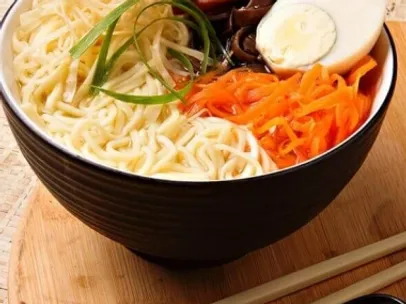
By: Devon L Kroesche, MS RDN LDN – Director of Marketing & Registered Dietitian Nutritionist at Case Specific Nutrition
Did you know that March is National Nutrition Month? National Nutrition Month® is an annual campaign created 50 years ago in 1973 by the Academy of Nutrition and Dietetics. During the month of March, everyone is invited to learn about making informed food choices and developing healthful eating and physical activity habits.
As a physician, you appreciate the importance of nutrition in your daily practice. You may even preach the necessity of eating well to your patients on a regular basis. Why then, can it be so challenging to implement some of these behaviors on an individual level?
Consider your daily schedule: maybe you are running between exam rooms seeing high volumes of patients, charting, and fielding phone calls from other providers. Perhaps you are up quite early or unbelievably late covering a unit or in surgery. Unexpected detours in your day can make prioritizing nutrition feel impossible. To complicate matters further, high levels of stress can suppress your body’s natural hunger cues, making attention to nutrition of utmost importance.

Modeling good self care by eating properly is a prerequisite to giving the best patient care possible. Not only will it offer you better mental focus, it will reduce those feelings of burnout and resentment because you are putting yourself first.
Tips for Eating Well as a Busy Physician:
- Establish routine meal times and stick to them as much as possible. Set reminders on your phone if you have to! Optimizing your meal timing, sometimes referred to as chrono nutrition, can have a significant impact on your overall metabolic health. In fact, a 2023 meta-analysis of randomized controlled trials (RCTs) compared higher caloric intake earlier in the day with higher caloric intake later in the day. Researchers found that those consuming more energy earlier in the day reported greater weight loss (when relevant), reductions in LDL-cholesterol, fasting blood glucose levels, and a reduction in markers of insulin resistance. This demonstrates the importance of fueling during the day rather than skipping meals, which often results in over eating hyper-palatable, hyper-caloric foods in the evening.
- Identify a short list of healthy convenient options you can keep available in a pinch. Examples: hand fruit, protein shakes, meal replacement bars with whole ingredients, heat & eat meals that are lower in sodium, and energy dense snacks such as nuts and dried fruit. Keep these snacks either in your lab coat, in your locker, or at your desk for easy access.
- Consider investing in a meal delivery service, such as Case Specific Meal Prep, for busy work weeks. When life gets busy, that’s when we need the support of a good diet more than ever. Having fresh healthy meals, designed by dietitians, and prepared for you in advance can massively simplify your life.
- Lean on the experts! Registered dietitians are trained to support you in making all types of healthy lifestyle changes. They design individualized plans to achieve your health and wellness goals.
- Start playing offense rather than defense with our nutrition! Planning ahead and curating your environment to make healthy choices easier is the key to long-term success. Remember, we need to don our own proverbial oxygen masks before we can help others!
Want to learn more? Visit http://www.casespecificnutrition.com to get connected with a dietitian via telehealth or at one of our various locations around Allegheny County!
Case Specific Nutrition is a Pittsburgh based group of registered Dietitians and Personal Trainers with significant experience, a passion for wellness, and a commitment to helping clients make changes that last.


